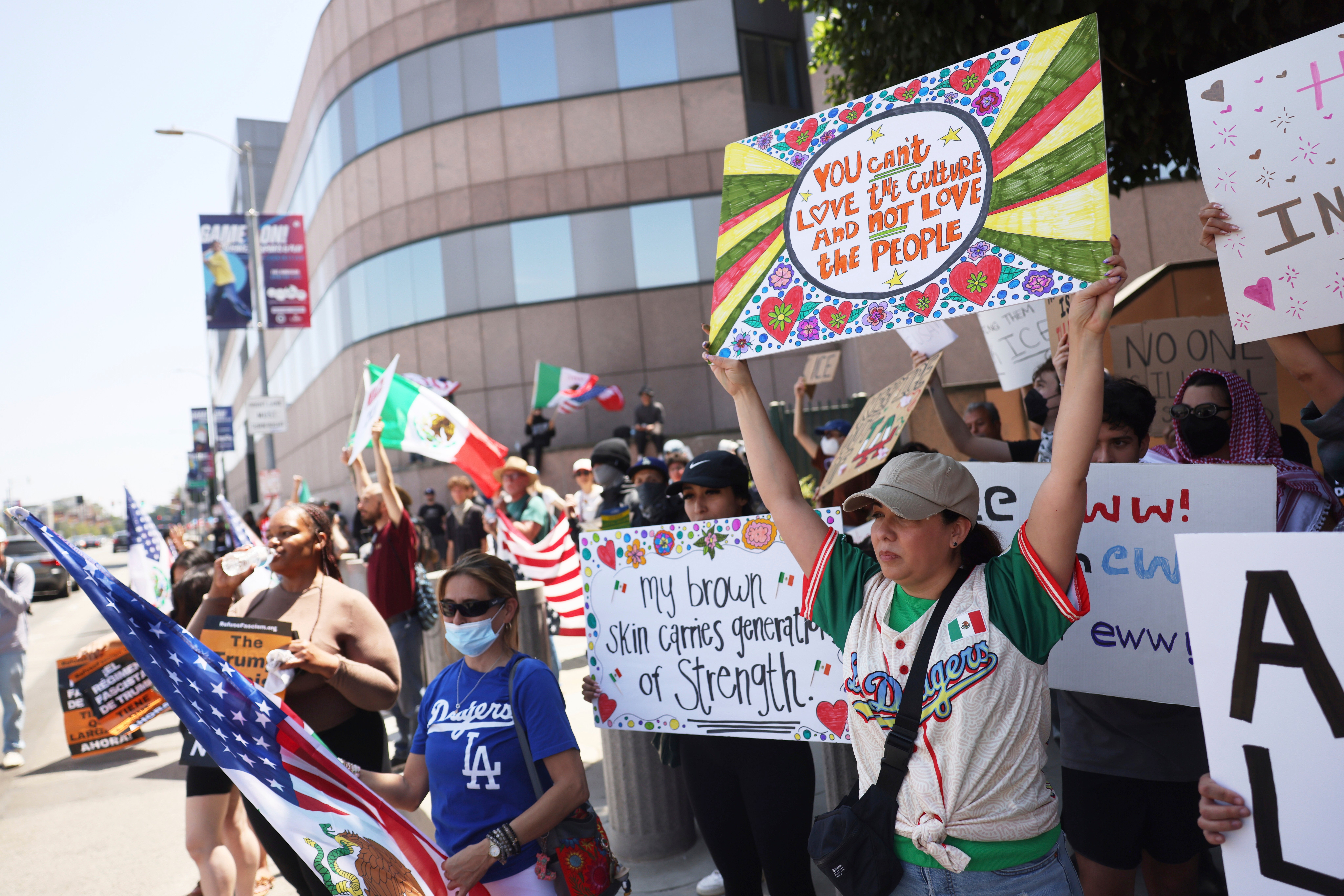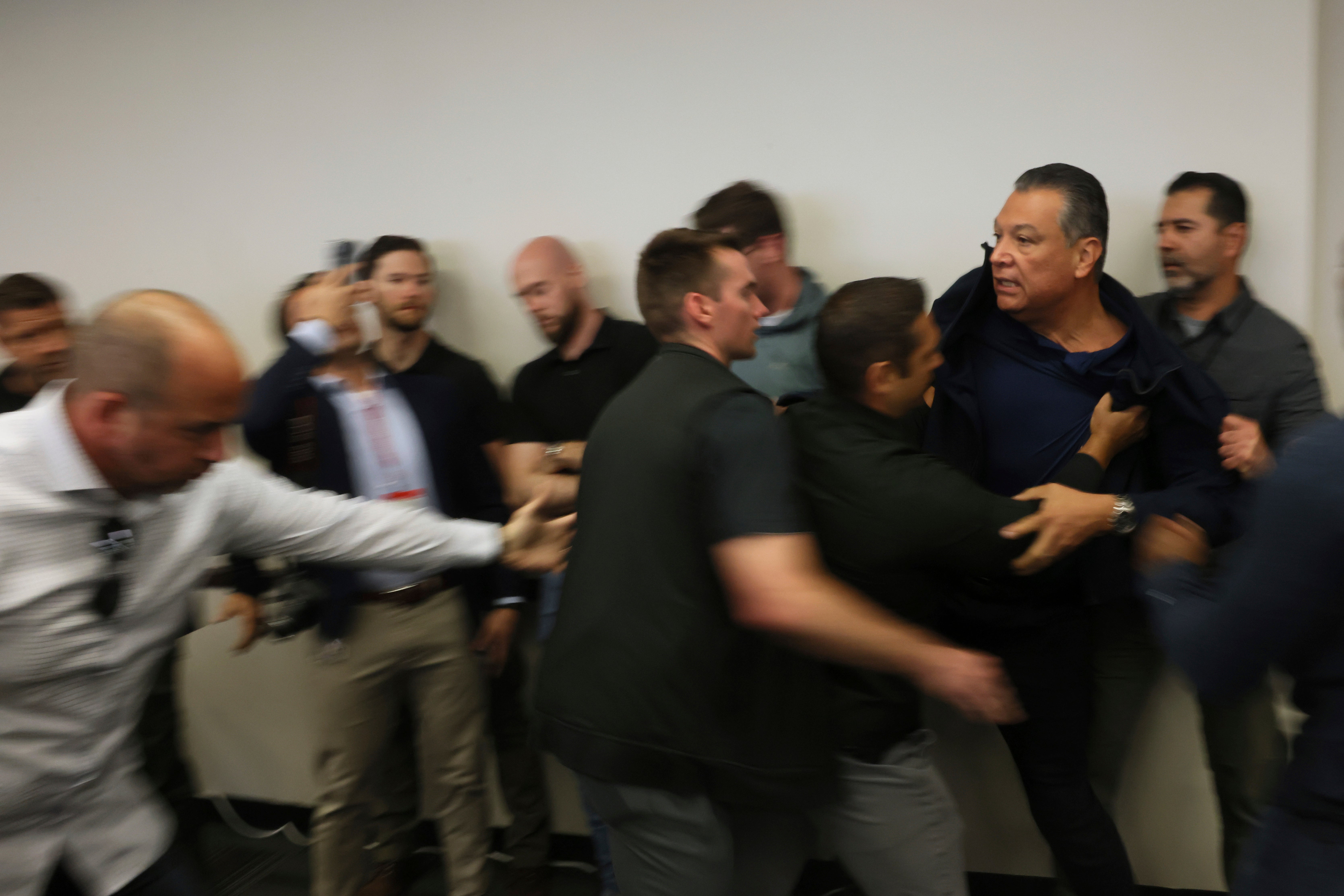This website uses cookies so that we can provide you with the best user experience possible. Cookie information is stored in your browser and performs functions such as recognising you when you return to our website and helping our team to understand which sections of the website you find most interesting and useful.
The Trump administration must return control of California National Guard troops it deployed to the Los Angeles protests back to state officials, a federal judge ruled on Thursday.
The decision sets up a potential standoff over the fate of the roughly 4,000 guardsmen the White House has tapped to respond to the ongoing unrest.
“[President Trump]’s actions were illegal—both exceeding the scope of his statutory authority and violating the Tenth Amendment to the United States Constitution,” Judge Charles R. Breyer wrote in a Thursday evening ruling, referring to the amendment preserving certain powers of the states from federal interference.
“He must therefore return control of the California National Guard to the Governor of the State of California forthwith,” the judge wrote. The decision also temporarily barred federal officials from deploying the National Guard in the meantime.
The court’s order was set to take effect at noon on Friday, but the Trump administration appealed it, prompting the Ninth U.S. Circuit Court of Appeals to pause the ruling. The appeals court said a hearing will be held June 17.

California officials, who opposed Trump’s deployment of the Guard, celebrated the ruling.
“The court just confirmed what we all know — the military belongs on the battlefield, not on our city streets,” Governor Gavin Newsom wrote in a statement on X. “This win is not just for California, but the nation. It’s a check on a man whose authoritarian tendencies are increasing by the day.”
The Independent has sought comment from the White House and Department of Justice.
The leadership of Task Force 51, which is coordinating the federal troop deployment in LA, deferred to the Office of the Secretary of Defense when asked for comment. The Defense Department said it does not comment on ongoing litigation as a matter of policy.

In his ruling, Judge Breyer found the Trump administration had failed to meet federal requirements or follow proper procedure for federalizing California’s National Guard, a step federal law only allows in extreme cases such as rebellions or total breakdowns in the ability to carry out federal authority.
“The protests in Los Angeles fall far short of ‘rebellion,’” the judge wrote, noting that the protests aren’t aimed at overthrowing the government, and immigration officers have continued to be able to make arrests throughout the demonstrations.
The decision came after the administration and the state squared off earlier in court as part of California’s lawsuit challenging the president’s decision from last week to federalize the troops despite opposition from state and local officials.
During the hearing, an attorney for California warned that the Trump administration, by taking control of the Guard, was attempting a “dangerous expansion of executive power.”

"They are saying the president can by fiat deploy the National Guard," attorney Nicholas Green reportedly said.
California argued the deployment, which has swelled to include some 4,000 National Guard troops — about half of whom are already in the city — and 700 Marines, violates federal law on the topic, which describes presidents giving orders to state National Guard branches “through the governors.”
The Trump administration, for its part, argued the president rightfully used his powers as commander-in-chief of the armed forces when calling up the troops, and that the National Guard order would’ve been lawful even without invoking the federal law in question.
Justice Department attorney Brett Shumate reportedly told the court on Thursday that pausing or revoking the White House decision on the National Guard was an “extraordinary” and inappropriate step for a federal court.
“It would reverse the president's military judgment,” Shumate said. “It would put federal officers and property at risk."
The administration also argued it communicated its orders to a state official responsible for the Guard, despite ordering the deployment without Newsom’s consent.
Judge Breyer often appeared skeptical towards the Trump administration’s position during the hearing, pushing back on its assertions that courts don’t have the authority to weigh in on the legal and factual basis for sending in the troops.
At various points, the judge waved a pocket Constitution at the participants in the case, and suggested political leaders making decisions without checks and balances were more like the kings against whom the 13 colonies revolted to form the United States.
“That’s the difference between a Constitutional government and King George,” Breyer said. “It’s not that a leader can simply say something and it becomes it.”



 Africana55 Radio
Africana55 Radio 
